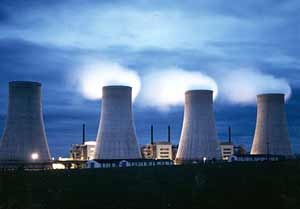
Russia’s Chernobyl-style reactors to keep operating until the end of the decade
Recent announcements by Russian nuclear officials that they will extend the runtimes of several Chernobyl-style RBMK nuclear reactors shed light on t...
News

Publish date: January 3, 2013
Written by: Charles Digges
News
The report by safety experts the Guardian quoted last week – which was obtained report, obtained by the paper from the website NuclearSpin – said that staff at Britain’s most important nuclear site did “not have the level of capability required to respond to nuclear emergencies effectively.”
In response to a freedom of information request filed by the paper, the Office for Nuclear Regulation (ONR), an arm of the Health and Safety Executive (HSE), said errors by senior fire officers in a preparedness exercise at Sellafield “could have led to delays in responding to the nuclear emergency and a prolonged release of radioactive material off-site.”
The criticism is revealed at a critical time for the nuclear industry, which is trying to build public confidence after the crisis at the Fukushima nuclear plant while drawing up plans to construct a new generation of atomic power stations in Britain.
It is also an embarrassment to Nuclear Management Partners, the private sector consortium which runs Sellafield and is part-owned by Areva, the French engineering company that has prepared the design for a proposed reactor at Hinkley Point in Somerset.
The initial report from the ONR led to an improvement notice being issued to the Cumbrian site, ordering it to improve its training and wider preparedness to deal with emergencies, The Guardian reported.
Two HSE fire specialists had watched a safety exercise in December 2011, which tested the Sellafield fire and rescue service’s ability to search for two people after a fictional accident that led to the spillage of radioactive liquid and an aerial release of radioactivity, said the documents obtained by the Guardian.
Although the exercise presented “simple scenarios under ideal conditions”, the service’s “resources were stretched” and “there were insufficient numbers of firefighters to achieve the objectives”, according to the HSE report, as quoted by the paper.
A spokesman for Sellafield told the Guaridian the successful introduction of an integrated risk management plan (IRMP) had subsequently led to the improvement notice issued in February 2012 being “closed out” by the ONR.
“This IRMP is the first of its kind for Sellafield Ltd and ONR has asked Sellafield Ltd if it would be happy to share it as good practice with other operators. A number of key improvements are being progressed to achieve the implementation of the IRMP, including enhanced training for SF&RS [Sellafield fire and rescues service] firefighters and officers,” he added.
The inspectors found evidence of “significant deficiencies around availability of resources, frequency and quality of training, competency and operational preparedness”.
The report also said that Sellafield had already “identified the need to improve arrangements in this area [but] no effective remedial action was put in place.”
This is not the first time the plant has been criticised by the HSE. A report in 2010 disclosed a number of safety problems at the site and the HSE ordered the closure for safety reasons of a plant for solidifying highly radioactive liquid waste. The executive also refused to endorse a “lifetime plan” outlining schedules for decommissioning the site over the next 110 years.
Sellafield was also recently under fire from the House of Commons public accounts committee, or National Audit Office (NAO) over soaring project costs, large salaries and continuing risks. One committee member, the Great Grimsby MP Austin Mitchell, described Sellafield as “the biggest nuclear slum in Europe.”

Recent announcements by Russian nuclear officials that they will extend the runtimes of several Chernobyl-style RBMK nuclear reactors shed light on t...

Europe’s only multi-source, injection-ready CO₂ storage site will more than triple its capacity by 2028. The decision follows an agreement with Stockholm Exergi to transport and store up to 800 – 900 kilotonnes of CO₂ per year. “This decision is years in the making, and the culmination of decades of hard work from many, Bellona included” says Bellona Europa Director Jonas Helseth.

Days after the Trump administration floated the idea of assuming control of Ukraine’s embattled Zaporizhzhia nuclear plant as part of the nascent pea...

During a call between President Volodymyr Zelensky of Ukraine and US President Donald Trump, the US leader reportedly floated an unusual idea—that Ky...